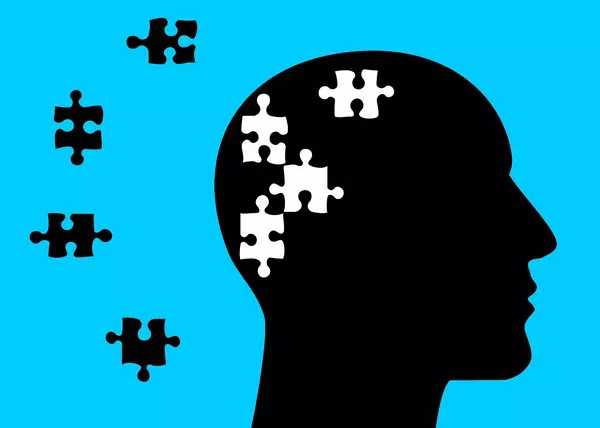In the quest for natural remedies to combat depression and its associated symptoms, L-theanine has emerged as a promising candidate. This amino acid derivative, primarily found in tea leaves, has garnered attention for its potential to alleviate mood disorders. In this article, we delve into the science behind L-theanine, its effectiveness in treating depression, safety considerations, and recommended usage.
1. What is L-Theanine?
L-theanine, chemically known as γ-glutamylethylamide, is an amino acid analogue primarily found in tea leaves, particularly in Camellia sinensis, the plant species from which green, black, and white teas are derived. Discovered in 1949 by Japanese scientists, L-theanine is known for its ability to cross the blood-brain barrier, exerting various physiological effects on the central nervous system.
In the brain, L-theanine acts on several neurotransmitter systems, including gamma-aminobutyric acid (GABA), serotonin, and dopamine. GABA is an inhibitory neurotransmitter associated with relaxation and stress reduction, while serotonin and dopamine play crucial roles in mood regulation, reward pathways, and emotional well-being. L-theanine’s mechanism of action involves modulating these neurotransmitters, leading to its potential mood-enhancing effects.
2. L-Theanine and Depression:
Numerous studies have investigated the potential of L-theanine in alleviating depression symptoms. While research is ongoing, existing evidence suggests several potential benefits:
Reduced Anxiety and Stress: L-theanine has been shown to promote relaxation without inducing sedation, leading to reduced anxiety and stress levels. By enhancing GABA activity, it helps mitigate the physiological and psychological symptoms associated with stress.
Improved Sleep Quality: Some studies indicate that L-theanine supplementation may improve sleep quality by promoting relaxation and reducing arousal. By modulating neurotransmitter activity, it may help individuals achieve a state of calm conducive to restful sleep.
Enhanced Cognitive Function and Focus: L-theanine’s effects on neurotransmitters extend to cognitive function, potentially enhancing attention, memory, and overall cognitive performance. Its ability to increase alpha brain wave activity, associated with relaxation and alertness, may contribute to improved focus and mental clarity.
Synergistic Effects with Caffeine: When combined with caffeine, L-theanine may exhibit synergistic effects on cognitive function and mood. While caffeine can sometimes induce anxiety and jitteriness, L-theanine counteracts these effects, leading to a smoother, more focused state without the typical caffeine crash.
While promising, it’s important to note that the current body of research on L-theanine and depression has limitations. Many studies have been small-scale or conducted on animal models, and results may not always be generalizable to humans. Additionally, the optimal dosage, duration of treatment, and long-term effects of L-theanine supplementation require further exploration.
3. Safety and Considerations:
L-theanine is generally considered safe for consumption, with minimal side effects reported. Unlike some pharmacological treatments for depression, L-theanine is not associated with significant adverse effects or withdrawal symptoms.
However, individuals with certain health conditions or those taking medication should exercise caution when using L-theanine supplements. Potential drug interactions may occur, particularly with medications for blood pressure or stimulants. Consulting a healthcare professional before starting L-theanine supplementation is advisable, especially for those with pre-existing medical conditions or individuals taking prescription medication.
4. Dosage and Usage:
Typical dosages of L-theanine for managing depression symptoms range from 100 to 400 milligrams per day, although individual response may vary. L-theanine supplements are available in various forms, including capsules, powders, and drinks. When choosing a supplement, it’s essential to select a reputable brand known for quality and purity.
When incorporating L-theanine into your routine, start with a lower dosage and gradually increase as needed, monitoring for any adverse effects. It’s also worth considering the timing of L-theanine intake, as taking it alongside caffeine may enhance its cognitive benefits.
Conclusion
In conclusion, L-theanine holds promise as a natural remedy for depression and associated symptoms. Its ability to modulate neurotransmitter activity, promote relaxation, and enhance cognitive function make it a compelling option for individuals seeking alternative treatments. While further research is needed to fully understand its efficacy and optimal usage, L-theanine presents a safe and potentially beneficial addition to the toolkit for managing depression. As always, consult with a healthcare professional before initiating any new supplement regimen.
FAQs
When should I take L-theanine for depression?
L-theanine can be taken at any time of the day, but many people find it beneficial to take it in the morning or early afternoon to help manage symptoms of depression throughout the day.
Is L-theanine an antidepressant?
L-theanine is not classified as an antidepressant in the traditional sense, but some research suggests that it may have mood-enhancing effects and could potentially be helpful as a complementary therapy for depression when used alongside other treatments.
Does L-theanine improve mood?
Yes, L-theanine has been shown in some studies to have mood-improving effects. It is thought to promote relaxation without sedation and may help reduce feelings of anxiety and stress, which can contribute to an overall improvement in mood.
Related topics:
- Unlocking the Potential: L-Theanine for Depression Relief
- Relieving Anxiety: A Comprehensive Guide
- Does Disability Include Mental Illness?


